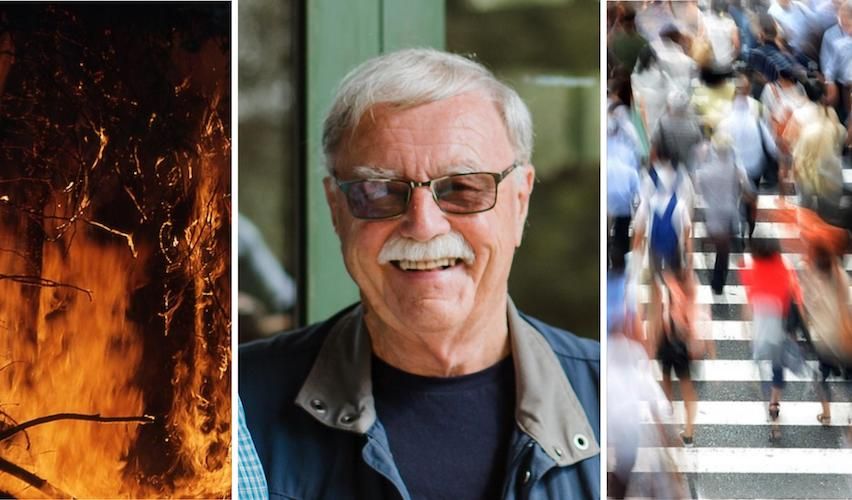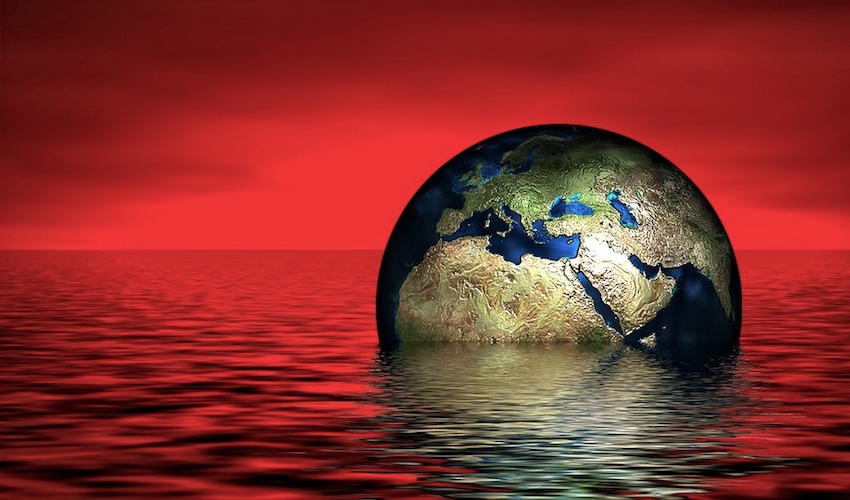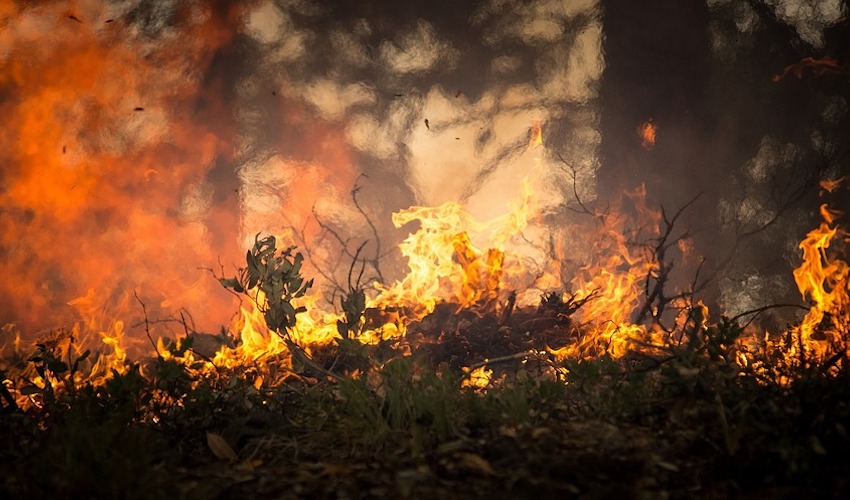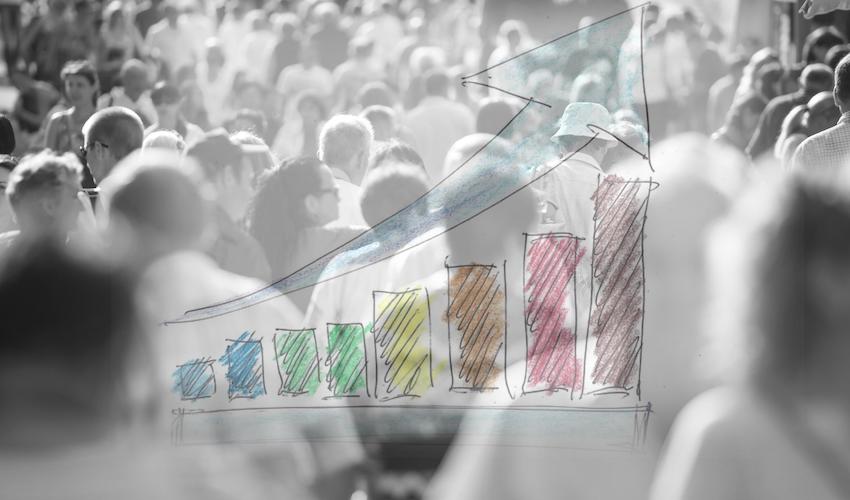

Fires ravishing the Amazon rainforest at a rate of three football pitches every minute have got one local environmentalist thinking what the burning issue underlying global problems really is - and it's particularly pertinent to Jersey.
If the island doesn't handle its growing population soon, Mike Stentiford says there will be environmental "consequences well beyond anything we've experienced before."
Here, the regular Express columnist explains why...
As just one of many who cares deeply about the way the world's natural environment is being so badly treated, erasing it from the conscience comes as neither an easy nor expected option.
Others will clearly say that if you have a surplus of worries, at least aim them in the direction of something more pressing and sympathetic to the human cause.
While few would argue with such a suggestion, most will agree that, environmentally speaking, the world seems now to be 'screwing itself up' - if you'll pardon the expression.

Pictured: Put bluntly, the world is "screwing itself up", Mike says.
Despite the 'climate emergency', the tried and sorely tested system of many a democratic government now appears to be going down the 'feral route' whilst likewise throwing itself into the meltdown pot are the tens of thousands of once familiar species of biodiversity that are now officially rubber stamped as being in terminal decline.
Reluctantly, one has to say... 'Welcome to the 21st century!'
Currently competing for a global top-spot on the 'political ineptitude suspect list' is Brazil's power-extravagant President Jair Bolsonaro.
It's impossible to comprehend the irresponsible non-thinking arrogance of a presidential leader who 'allegedly' holds the stewardship of the world's greatest natural treasure, the Amazon rainforest.
That someone would officially authorize such environmental devastation - over 70,000 individual wild fires between January and August - is an act of betrayal that clearly shows the diversity of opinion within Brazil's political voting system.

Pictured: There were over 70,000 individual wild fires between January and august.
The prime reasoning behind such global vandalism, so we're informed, is to increase the opportunities for Brazil's growing population which currently stands at over 212 million.
The presidential dictate is that every Brazilian citizen should have the given rights to gain more land, more space and more opportunities.
It might squarely be argued that the common denominator in this, and many other of the world's countless ills is population - which, in real and simple terms means us: you, me and the rest of the human fraternity. Current global population figures register at just over 7.2 billion with 8 billion forecast by 2030.
These are numbers that competently confirm the genuine belief that global population levels are making a massive impact in every corner of our living planet.
While accepting that the ingenuity of man is already computing a number of radical solutions, alleviating some of the issues will be entirely dependent on the reaction of the current global populace - no mean feat if it can be pulled off!

Pictured: "It might squarely be argued that the common denominator in this, and many other of the world's countless ills is population."
It would be ridiculously naïve to draw any global parallels with Jersey, although the future battlegrounds between population and land for housing indicates how seriously more competitive the two are likely to become.
As an environmental realist, it's now becoming very obvious that future pressures on our countryside and coastline together with its interdependent biodiversity are due for some radical changes.
The truth of the matter is that this steady lack of control over an increasing local population has already led to the disappearance of several once familiar species.
Not that the loss of a multitude of local plants and animals are likely to induce a majority round of public anxiety, sadly.
All the same, hoping for some kind of natural 'second coming' within our increasingly pressurised landscape is beginning to look incredibly unrealistic.
Pictured: Jersey's landscape is becoming "increasingly pressurised."
A quote from a recent BBC trailer states that, by 2035, 'forests will be gone' – a prediction that predates the current indiscriminate burning of the Amazonian rain forests.
It ends, even more succinctly, with the question, 'What on earth did we do?'
It's a pertinent ask that, in a worldwide context, is impossibly difficult to answer with any degree of defensive innocence.
Today's stark reality is that, barring a financial disaster of epic proportion, Jersey's currently increasing and demanding population will have consequences well beyond anything we've experienced before.
Some will say that this is simply evolution and that steady increases in our population will be to everyone's collective advantage.
I'm sorry to say that such collective benefits fail to include the very essence of why we all wish to call Jersey our home - our natural and sadly beleaguered environment.
The views expressed in this article are those of the author and not Bailiwick Express.
You don’t know what you have until it’s gone…
Planning and Environment = chalk and cheese?
Why are we not embracing the Jersey National Park?
Don't judge a book by its cover...or an insect by its colours
Comments
Comments on this story express the views of the commentator only, not Bailiwick Publishing. We are unable to guarantee the accuracy of any of those comments.